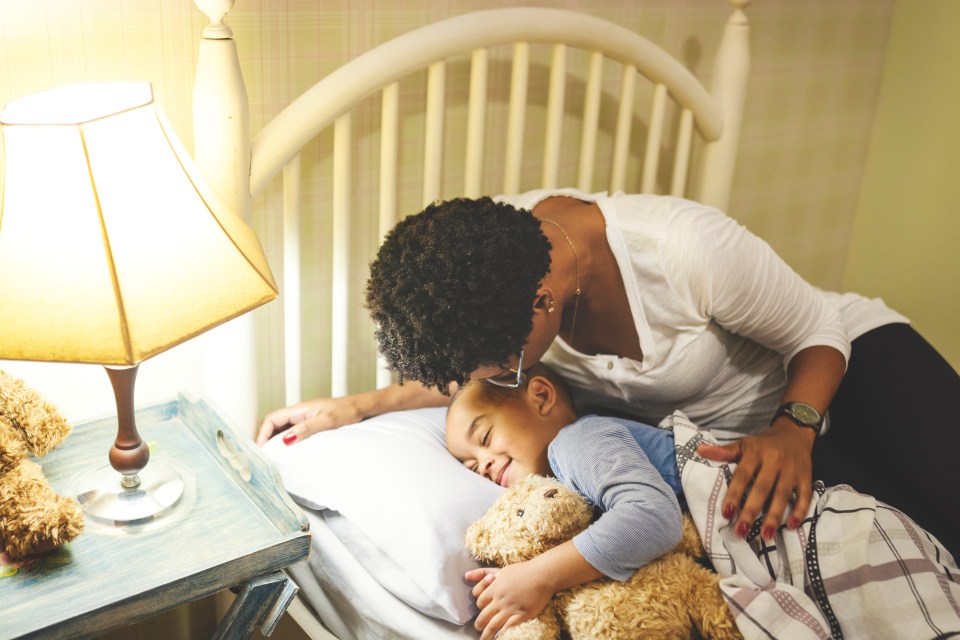PARENTS may overlook whether their kids are getting enough sleep when other tasks seem to take over.
With summer holidays winding down, parents across the UK are busy preparing their children for the return to school, and it’s important to spend the next few weeks resetting routines.
Why you should use a sleep calculator
This shift from relaxed summer schedules to early school morning wakeups can be a challenge.
And this has been reflected in online search terms, where searches related to children’s sleep have seen an increasing.
Studies have shown that a good night’s sleep is vital for children at school.
It optimises their concentration, mood and academic success.
A Kids Sleep Calculator devised by Hillarys, determines the best bedtime for different children.
It is an easy-to-use tool that presents parents with an ideal bed-time for their child.
This is based on age and wake-up time, available just in time for the new school year.
Product expert at home interiors brand Hillary’s, Yvonne Keal, said: “As a parent, I know how tough it can be to get kids to wind down at bedtime, especially when it’s still light outside.
“We put blackout blinds in my children’s rooms, and it really helped them settle more quickly in the evenings and not wake up so early.
She revealed the value of using a sleep calculator: “I also found it helpful to work out a proper bedtime as the new school term approached, and tools like a sleep calculator can be really useful for figuring out what time they should be heading to bed.
“It just makes the whole routine a bit easier for everyone.”
How the calculator works
The Sleep Calculator for Kids works out the best time for children to wake up by continue sleep cycles.
Results of the calculator show wake-up times that are between cycles, described as “when you’re most likely to be greeted with a smile from your child.”
The time it takes for children to nod off also needs to be accounted for – which for most is around 14 minutes.
This is included in the result of the calculator.
Here is how much sleep each age group should get for a good night’s sleep.
- 4 and 5 years old – 10 to 13 hours
- 6 to 12 years old – 9 to 12 hours
- 13 to 18 years old – 8 to 10 hours
Other sleep tips for parents
In addition to the calculator, there are also tips parents can use to help their children get a better sleep.
- Establish a consistent bedtime routine
Setting a regular bed and wake-up time is good for consistency, even on the weekend.
With a predictable routine, children’s body clocks can be regulated.
As a result, it makes it easier for them to fall asleep.
- A calm sleeping environment
It is important to create a calm and sleep-friendly environment for children in their bedrooms.
Their rooms should be a relaxing space that prioritises sleep.
Keeping it tidy, quiet and cool helps in this.
Parents should consider using blackout blinds to better facilitate this.
They can block out early morning or evening light, which provides a signal to children’s bodies that it is time to sleep.
- Limit screen time
Try to turn off screens at before bedtime – ideally at least an hour before.
Blue light from electronics like TVs, tablets and phones can interfere with melatonin production, which is the hormone that aids in sleep.
- Do relaxing activities before bed
Encouraging activities like reading a book, listening to calming music or having a warm bath is good for getting read to sleep.
It helps children’s bodies wind down for the day, rather than keeping them active.
- Avoid Caffeine and Sugar
Parents should watch out for caffeinated drinks or sugary snacks that they give to their children in the afternoon or evening.
These foods and drinks make it harder for the body to fall asleep.
- Keep the cool room and have fresh air
It is important to have a well-ventilated, slightly cool room ideally around 16 – 20 degrees celsius.
This can be done by opening a window if it is safe to do so.














